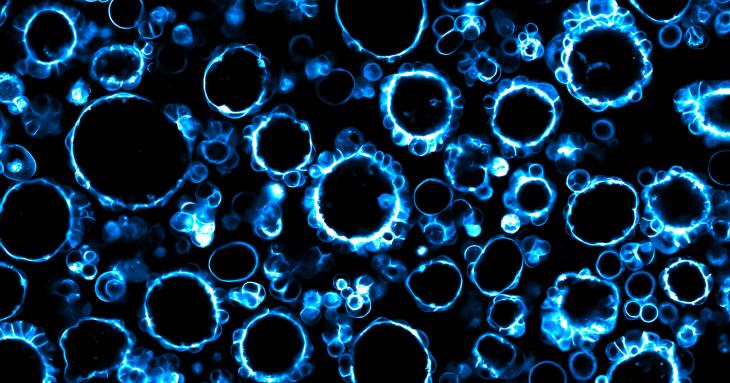-
Book Launch "ಪ್ರಯೋಗಾಲಯದ ಪ್ರತಿಧ್ವನಿಗಳು" (Echoes from the Research Lab) by Professor P.V. Shivaprasad
We are very excited to launch ಪ್ರಯೋಗಾಲಯದ ಪ್ರತಿಧ್ವನಿಗಳು (Echoes from the Research Lab)
Penned by Professor P. V. Shivaprasad, ಪ್ರಯೋಗಾಲಯದ ಪ್ರತಿಧ್ವನಿಗಳು (Echoes from the Research Lab) is a collection of poems in Kannada, reflecting on science, rationality, and scientific temper.
-
When worms go with the flow of physics
Worms may look simple, but the way they move through the world is anything but.
-
Sometimes, do nothing - genes respond better when they wait
When a cell receives a signal (like a hormone), it needs to turn specific genes on quickly and precisely.
-
How chemistry controls cancer cell clusters
Cancer cells are often imagined as rogue agents growing uncontrollably.
-
Dr Anjana Badrinarayanan elected as a Fellow of Indian Academy of Sciences
Dr Anjana Badrinarayanan, Associate Professor at the National Centre for Biological Sciences, Bengaluru has been elected as a Fellow of the Indian Academy of Sciences.
Official Announcement: https://www.ias.ac.in/application/Fellows_2025.pdf
-
NCBS Students win Hindustan Unilever Limited Women in STEM Fellowship
Arpitha Jayanth (Professor Mahesh Sankaran's Lab) and Sakshi Shigvan (Dr Dimple Notani's Lab), graduate students at the National Centre for Biological Sciences, Bengaluru have been selected this year for t
-
Dr Soumyashree Das elected as a EMBO Global Investigator
Dr Soumyashree Das, faculty at the National Centre for Biological Sciences, Bengaluru, has been elected to the EMBO Global Investigator's Network.
-
Dr Tapomoy Bhattacharjee elected as EMBO Young Investigator 2025
Dr Tapomoy Bhattacharjee, faculty member at the National Centre for Biological Sciences, Bengaluru, has been el
-
Professor P. V. Shivaprasad receives the 2025 Tata Transformation Prize
Dr. Padubidri V. Shivaprasad, Professor at the National Centre for Biological Sciences (NCBS), Bengaluru is the Food Security Winner for Tata Transformation Prize 2025. The prize entails a research grant of INR 2 crores (approximately USD 228,000) to advance their research and support real-world implementation.
-
NCBS and ICTS Announce the Establishment of CALIBRE – Centre for Artificial Learning and Intelligence for Biological Research and Education
The National Centre for Biological Sciences (NCBS) and the International Centre for Theoretical Sciences (ICTS), both centres of the Tata Institute of Fundamental Research (TIFR), have signed an agreement to jointly establish a Centre for Artificial Learning and Intelligence for Biological Research and Education (CALIBRE).















